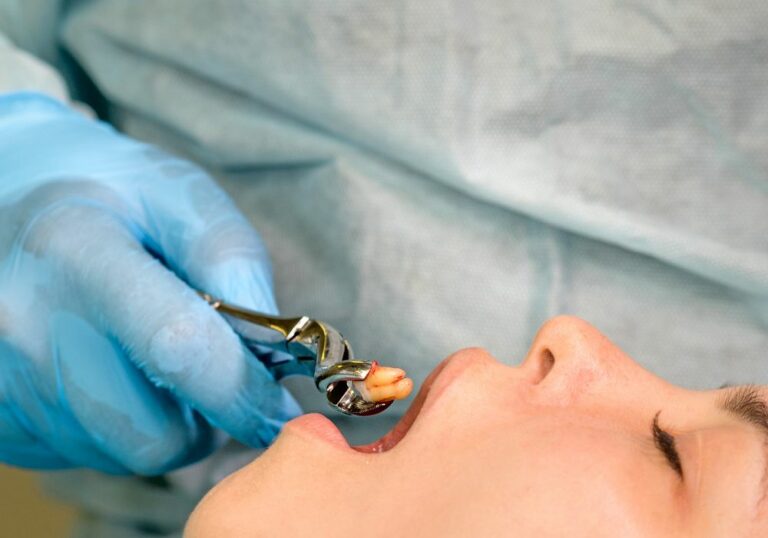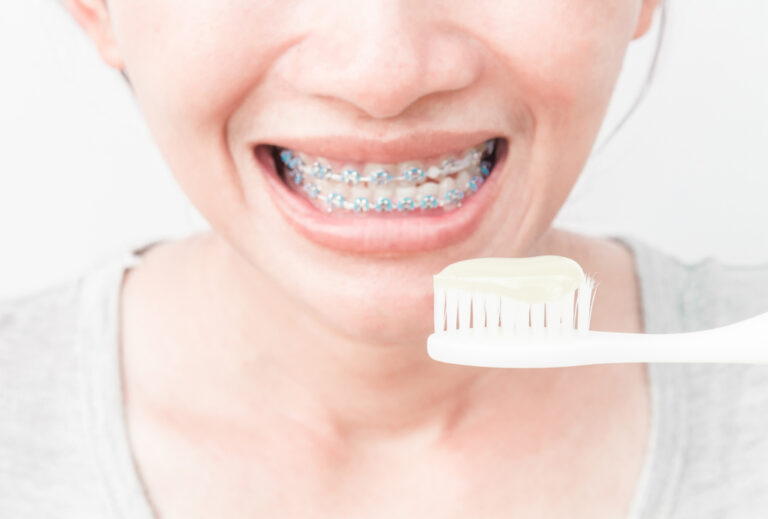Are you aware that not brushing your teeth regularly can have a significant impact on your gut health? Recent studies have shown that poor oral hygiene can lead to an imbalance in the gut’s microbiome, which can cause painful and sometimes chronic stomach conditions. This is because the bacteria that cause gum disease can travel to the gut and affect the balance of bacteria there.
Gingivitis, a form of gum disease, can weaken the gums and lead to inflammation. The bacteria present in plaque inflame and damage the gums, causing them to bleed and recede. This can create pockets between the teeth and gums where bacteria can thrive, leading to infections that can spread to other parts of the body. If left untreated, gingivitis can progress to periodontitis, which can cause tooth loss and even affect the jawbone.
Moreover, a new study suggests that trouble in your gut may actually start with trouble in your mouth. Inflammatory bowel disease (IBD), which affects about three million people in the United States, can be caused by an imbalance in the gut’s microbiome. The study found that the bacteria that cause gum disease can also contribute to an imbalance in the gut’s microbiome, making IBD worse. This means that maintaining good oral hygiene is essential for not only your dental health but also your gut health.
Understanding Gut Health
Your gut is made up of trillions of microorganisms, including bacteria, viruses, and fungi, that live in your digestive tract. These microorganisms, collectively known as the gut microbiome, play a crucial role in maintaining your overall health and well-being.
A healthy gut microbiome is essential for proper digestion, absorption of nutrients, and elimination of waste. It also helps regulate your immune system, produces essential vitamins, and even affects your mood and mental health.
However, an unhealthy gut microbiome can lead to a range of health problems, including digestive issues, allergies, autoimmune diseases, and even mental health disorders. Factors that can disrupt the balance of your gut microbiome include poor diet, stress, lack of sleep, and certain medications.
To maintain a healthy gut microbiome, it’s important to eat a balanced diet rich in fiber and whole foods, manage stress levels, get enough sleep, and avoid unnecessary use of antibiotics and other medications that can harm your gut bacteria.
In addition, taking care of your oral health can also have a positive impact on your gut health. Research has shown that the bacteria in your mouth can affect the bacteria in your gut, and poor oral hygiene can lead to an imbalance in your gut microbiome.
By brushing and flossing your teeth regularly, eating a healthy diet, and avoiding sugary and processed foods, you can help support a healthy gut microbiome and improve your overall health.
Link Between Oral and Gut Health

Taking care of your oral health is not only essential for your teeth and gums but also for your gut health. Recent research has shown that there is a strong link between oral and gut health. The mouth and gut are connected through the digestive system, and any changes in the oral microbiome can have an impact on the gut microbiome.
The oral microbiome consists of hundreds of different species of bacteria that live in your mouth. These bacteria play a crucial role in maintaining oral health by breaking down food particles, fighting off harmful bacteria, and protecting the teeth and gums. However, when the balance of the oral microbiome is disrupted, it can lead to various oral health problems such as gum disease, tooth decay, and bad breath.
The gut microbiome, on the other hand, consists of trillions of microorganisms that live in your digestive tract. These microorganisms play a critical role in maintaining gut health by aiding in digestion, producing essential nutrients, and supporting the immune system. When the gut microbiome is disrupted, it can lead to various health problems such as inflammatory bowel disease, irritable bowel syndrome, and even mental health disorders.
Research has shown that the oral microbiome and gut microbiome share many of the same species of bacteria. This means that the bacteria in your mouth can also colonize in your gut. When the balance of the oral microbiome is disrupted, it can lead to an overgrowth of harmful bacteria that can travel down to the gut and disrupt the gut microbiome’s balance.
Poor oral hygiene, such as not brushing your teeth regularly, can lead to an overgrowth of harmful bacteria in the mouth. This can result in gum disease, tooth decay, and bad breath. These oral health problems can then lead to an imbalance in the oral microbiome, which can have an impact on the gut microbiome.
In conclusion, taking care of your oral health is crucial for maintaining good gut health. By practicing good oral hygiene habits such as brushing your teeth twice a day, flossing daily, and visiting your dentist regularly, you can help maintain a healthy balance in your oral microbiome and prevent any harmful bacteria from traveling down to your gut.
Consequences of Not Brushing Teeth

Neglecting to brush your teeth regularly can lead to a variety of oral health and gut health problems. Here are some of the consequences you may face if you don’t brush your teeth:
Oral Health Issues
- Plaque buildup: If you don’t brush your teeth regularly, plaque can build up on your teeth. Plaque is a sticky film of bacteria that forms on your teeth and gums. Over time, this can lead to tooth decay and gum disease.
- Gingivitis: Plaque can also weaken your gums and lead to gingivitis, a form of gum disease. Gingivitis is characterized by red, swollen gums that bleed easily.
- Bad breath: Neglecting to brush your teeth can cause bad breath, also known as halitosis. This is because the bacteria in your mouth produce odorous gases as they break down food particles and other debris.
Gut Health Problems
- Inflammatory bowel disease (IBD): Poor oral hygiene can make IBD worse. Researchers have found that bacteria in your mouth can travel to your gut and cause inflammation, exacerbating IBD symptoms.
- Pneumonia: Certain bacteria in your mouth can be pulled into your lungs, causing pneumonia and other respiratory diseases.
- Dementia: Studies have shown that people who don’t brush their teeth regularly are up to 65% more likely to have dementia.
To avoid these oral health and gut health problems, it’s important to brush your teeth twice a day and floss regularly. Additionally, make sure to visit your dentist for regular check-ups and cleanings.
Scientific Studies on Oral-Gut Health Connection
Recent studies suggest that there is a connection between oral health and gut health. Research has shown that the bacteria in our mouth can affect the bacteria in our gut, and vice versa. This means that poor oral hygiene can lead to an imbalance of bacteria in the gut, which can cause a range of health problems.
One study published in the Journal of Oral Microbiology found that people with periodontal disease had a higher prevalence of gut dysbiosis, which is an imbalance of bacteria in the gut. The study also found that the severity of periodontal disease was directly related to the severity of gut dysbiosis.
Another study published in the Journal of Gastroenterology and Hepatology found that people with inflammatory bowel disease (IBD) had a higher prevalence of periodontal disease than those without IBD. The study also found that people with periodontal disease had higher levels of inflammation in their gut.
These studies suggest that poor oral hygiene can lead to an imbalance of bacteria in the gut, which can cause inflammation and other health problems. It is important to maintain good oral hygiene to prevent these health problems from occurring.
In conclusion, scientific studies have shown that there is a connection between oral health and gut health. Poor oral hygiene can lead to an imbalance of bacteria in the gut, which can cause a range of health problems. It is important to maintain good oral hygiene to prevent these health problems from occurring.
Preventive Measures for Good Oral and Gut Health

Maintaining good oral hygiene is essential for overall health, including gut health. Poor oral hygiene can lead to the growth of harmful bacteria in the mouth, which can then travel to the gut and disrupt the balance of good and bad bacteria. Here are some preventive measures you can take to maintain good oral and gut health:
Daily Brushing and Flossing
Brushing your teeth twice a day for two minutes each time and flossing daily can help remove plaque and food particles from your teeth and gums. This can prevent the growth of harmful bacteria in your mouth and reduce the risk of gum disease, tooth decay, and other oral health problems. Make sure to use a soft-bristled brush and fluoride toothpaste, and don’t forget to brush your tongue to remove bacteria that can cause bad breath.
Regular Dental Check-Ups
Regular dental check-ups are an important part of preventive care. Your dentist can identify and treat oral health problems early, before they become more serious. It is recommended to visit the dentist every six months for a cleaning and check-up. During the check-up, your dentist will examine your teeth and gums, take X-rays if necessary, and provide advice on how to maintain good oral hygiene.
Healthy Diet
A healthy diet is essential for both oral and gut health. Eating a diet that is high in sugar and processed foods can increase the risk of tooth decay and gum disease. Instead, focus on eating a balanced diet that includes plenty of fruits, vegetables, whole grains, and lean protein. These foods are rich in vitamins and minerals that support oral and gut health.
In conclusion, taking preventive measures to maintain good oral hygiene can also benefit your gut health. By brushing and flossing daily, visiting the dentist regularly, and eating a healthy diet, you can reduce the risk of oral health problems and promote overall health and wellbeing.
Frequently Asked Questions
What happens when you don’t brush your teeth regularly?
If you don’t brush your teeth regularly, plaque can build up on your teeth and gums. Plaque is a sticky film of bacteria that can cause cavities, gum disease, and bad breath. Gum disease can lead to inflammation, bleeding, and even tooth loss. In severe cases, gum disease can also affect your overall health.
Can mouth bacteria cause stomach problems?
Yes, some mouth bacteria can cause stomach problems. For example, Helicobacter pylori is a type of bacteria that can cause ulcers in the stomach and small intestine. Poor oral hygiene can increase the risk of H. pylori infection. However, not all stomach problems are caused by mouth bacteria.
What happens if you don’t brush your teeth for 20 years?
If you don’t brush your teeth for 20 years, you are likely to experience severe tooth decay, gum disease, and bad breath. You may also lose some or all of your teeth. In addition, poor oral hygiene can increase the risk of other health problems, such as heart disease and diabetes.
What is the connection between oral health and gut health?
There is a growing body of research that suggests a connection between oral health and gut health. Poor oral hygiene can lead to an overgrowth of harmful bacteria in the mouth, which can then travel to the gut and disrupt the balance of good and bad bacteria. This disruption, known as dysbiosis, can contribute to a range of health problems, including digestive issues, inflammation, and even mental health problems.
Can not brushing your teeth cause bacteria in your stomach?
Yes, poor oral hygiene can lead to an overgrowth of harmful bacteria in the mouth, which can then travel to the gut and cause an imbalance of good and bad bacteria. This can contribute to a range of health problems, including digestive issues, inflammation, and even mental health problems.
Can poor oral hygiene lead to dysbiosis?
Yes, poor oral hygiene can lead to dysbiosis, which is an imbalance of good and bad bacteria in the gut. Dysbiosis can contribute to a range of health problems, including digestive issues, inflammation, and even mental health problems. Maintaining good oral hygiene can help prevent dysbiosis and promote overall health.






